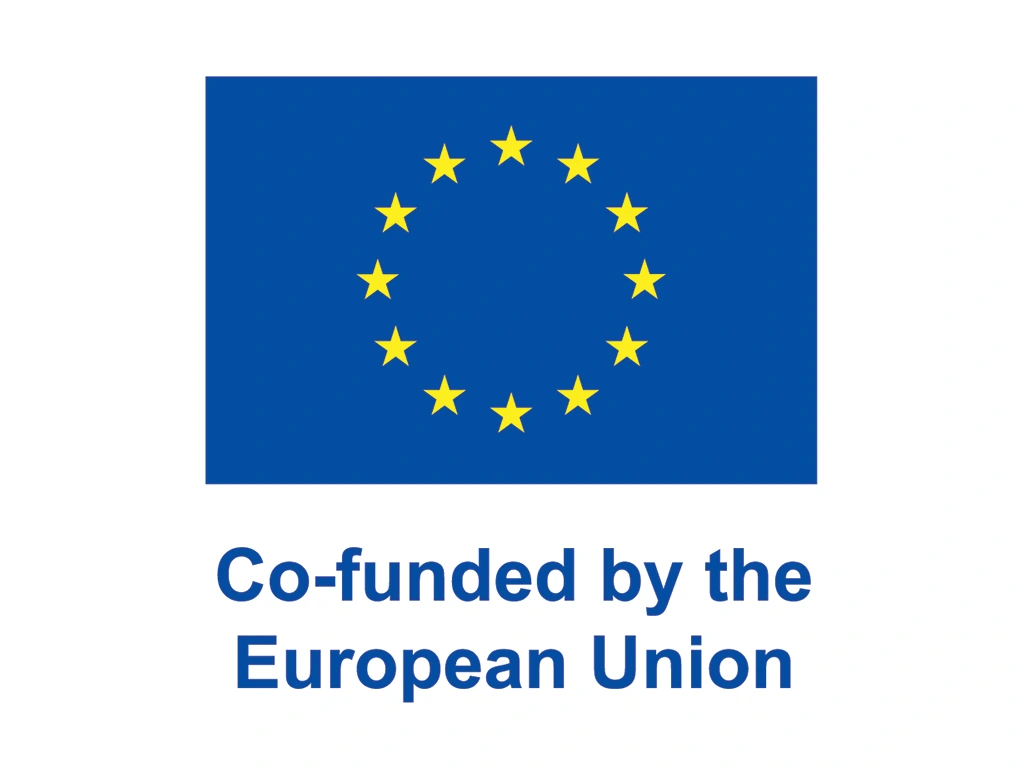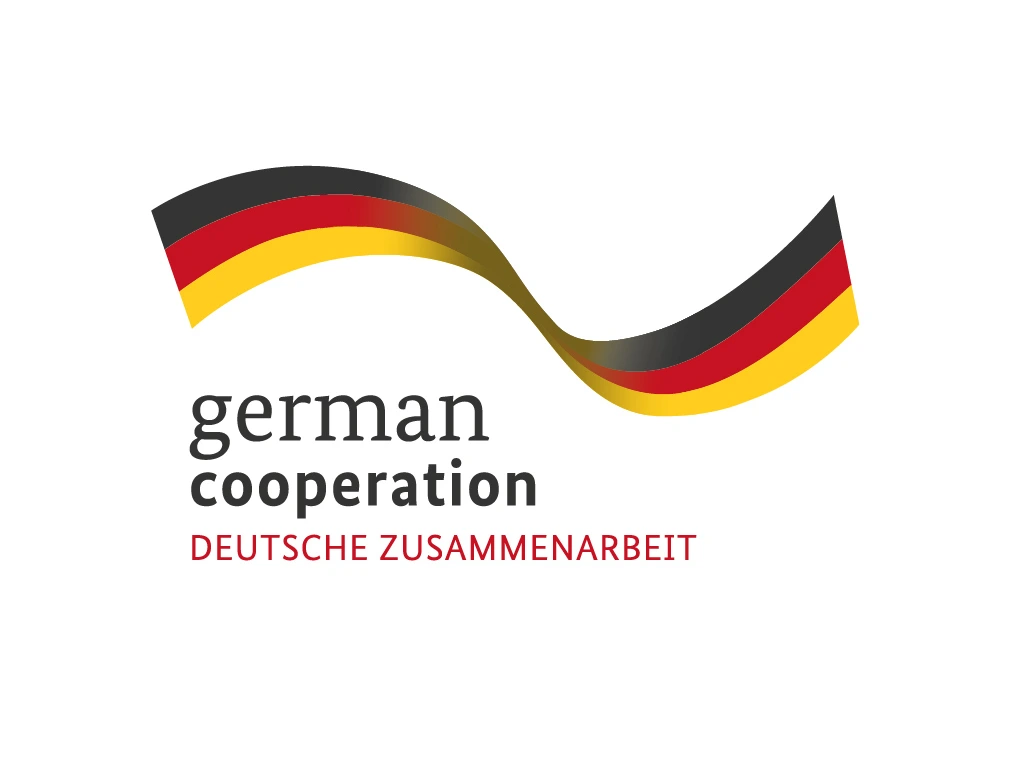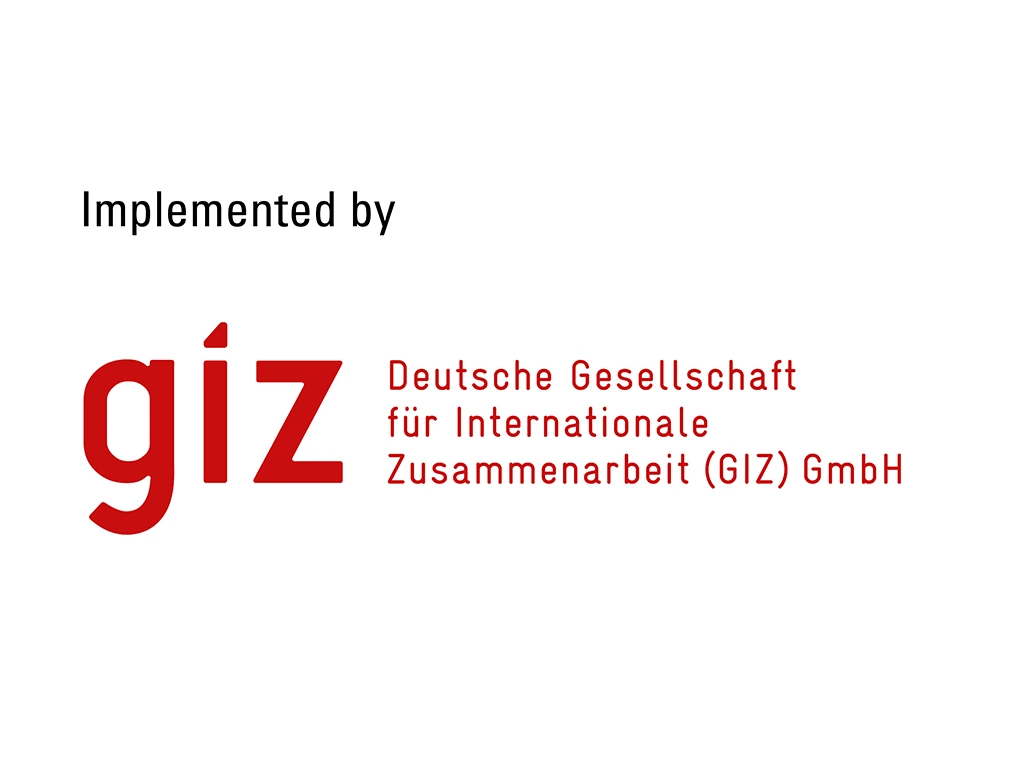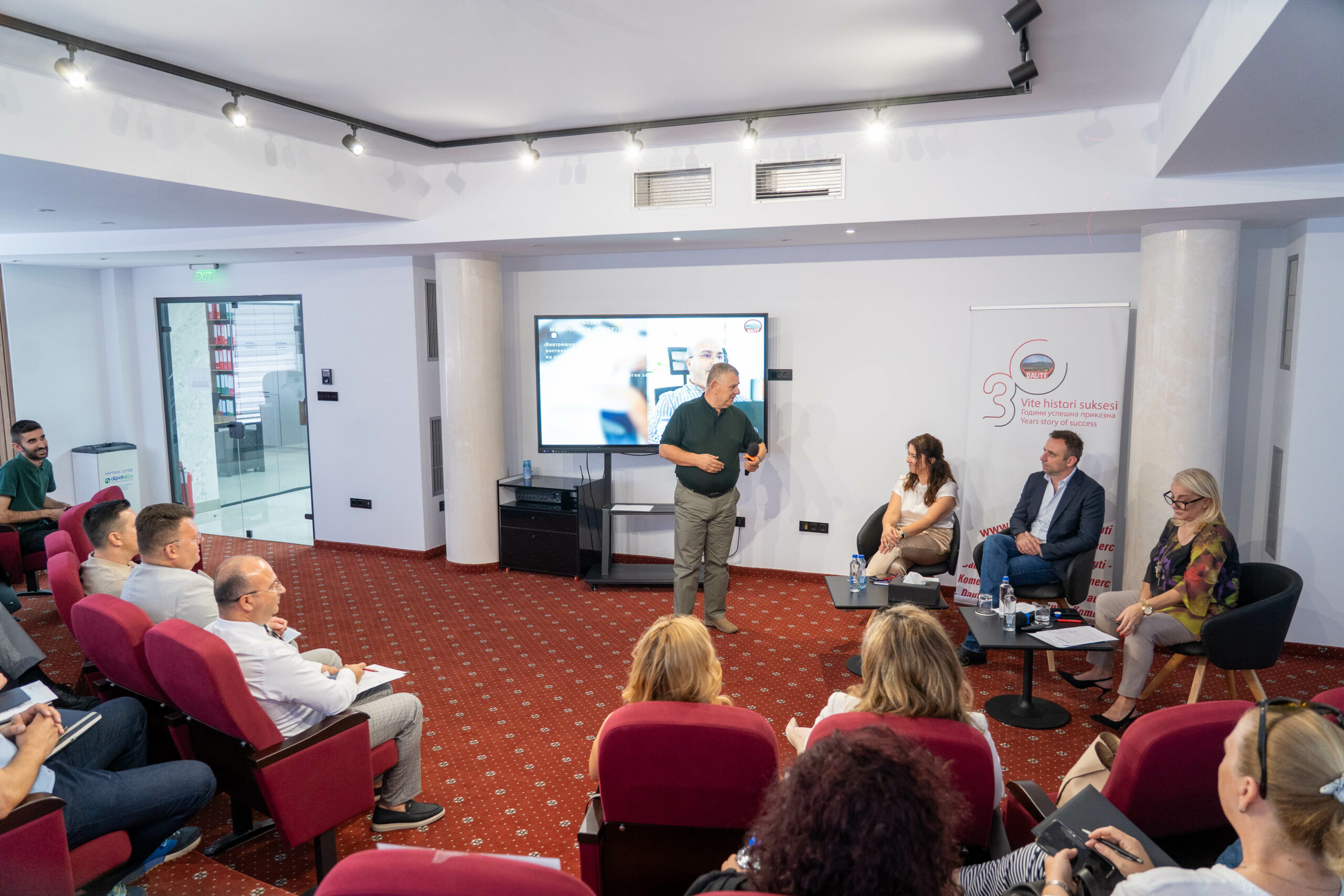
Skopje, 8 July 2025 – On the initiative of the Association of Authorized Economic Operators (AEO) for the Western Balkans and with the precious support of Ms. Olgica Nakova, Board Member from North Macedonia, a round table was organized with companies holding AEO status in North Macedonia. The event was hosted with excellent organization by Dauti Komerc and attended by representatives of AEO-certified companies as well as the GIZ RegioTrade project.
The purpose of the round table was to create an open dialogue between the AEO Association and AEO companies from North Macedonia on the realization of AEO benefits, the institutional and operational gaps in implementation, and the practical challenges faced in daily operations.
Key Challenges Identified
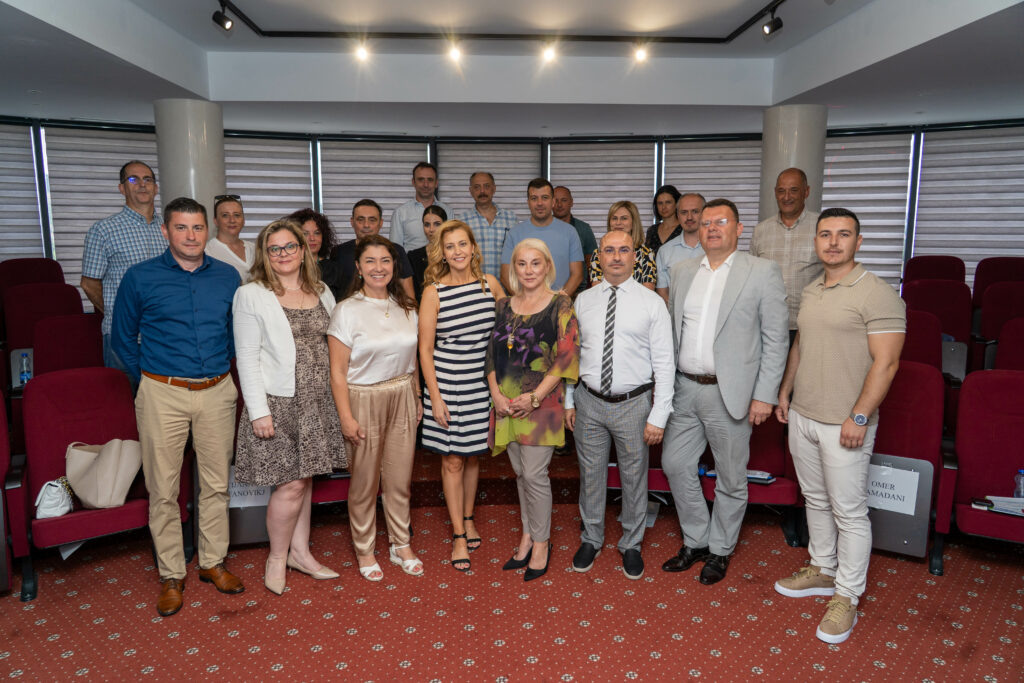
Participants raised several systemic and operational issues affecting the effectiveness of the AEO status in North Macedonia. These included:
- Limited Benefit Realization: AEO benefiting procedures are currently not functioning as intended.
- Lack of Awareness at Border Crossings: Customs officers at border checkpoints often lack familiarity with the Authorized Economic Operator (AEO) program. To ensure more consistent implementation and recognition of AEO benefits, it may be beneficial to consider future updates to training modules and operational guidelines that integrate AEO-related procedures within the broader legal framework.
- Green Lanes Not Functioning: Despite being a core AEO benefit, green lanes are not operational.
- Weak Interagency Communication: Coordination between Customs, the Food and Veterinary Agency (AVA), and the Border Police experiences challenges, potentially affecting the efficiency of border operations.
- Interpretation of AEO benefits: While Customs officers diligently verify the eligibility of AEO benefits and transporter status, occasional variations in the application of related procedures may occur. Continued collaboration and dialogue between Customs and business operators can help ensure consistent understanding and smooth facilitation at border crossings.
- Increased Inspections: Some companies reported a 15–20% rise in red channel inspections.
- Limited Shift Coverage: Customs operations outside Skopje generally operate in two shifts, whereas only the Skopje office provides 24/7 services. This limited coverage can lead to delays, particularly for companies with continuous production schedules that depend on overnight customs clearance.
- EXIM System Integration Needed: The EXIM system currently does not recognize AEO status, causing inefficiencies.
- Unrealized Benefits: Promised incentives, such as reduced guarantees, are not being provided.
- Lack of Customs Capacity: There is an ongoing need to strengthen institutional expertise and allocate adequate resources within Customs to ensure the robust and effective administration of the AEO program
- Certification Not Fully Functional: Certification alone does not yield the expected benefits without proper institutional implementation.
Despite the challenges, participants acknowledged positive engagement from some customs officials and highlighted the progress made since the AEO Association, supported by GIZ, began its advocacy efforts.
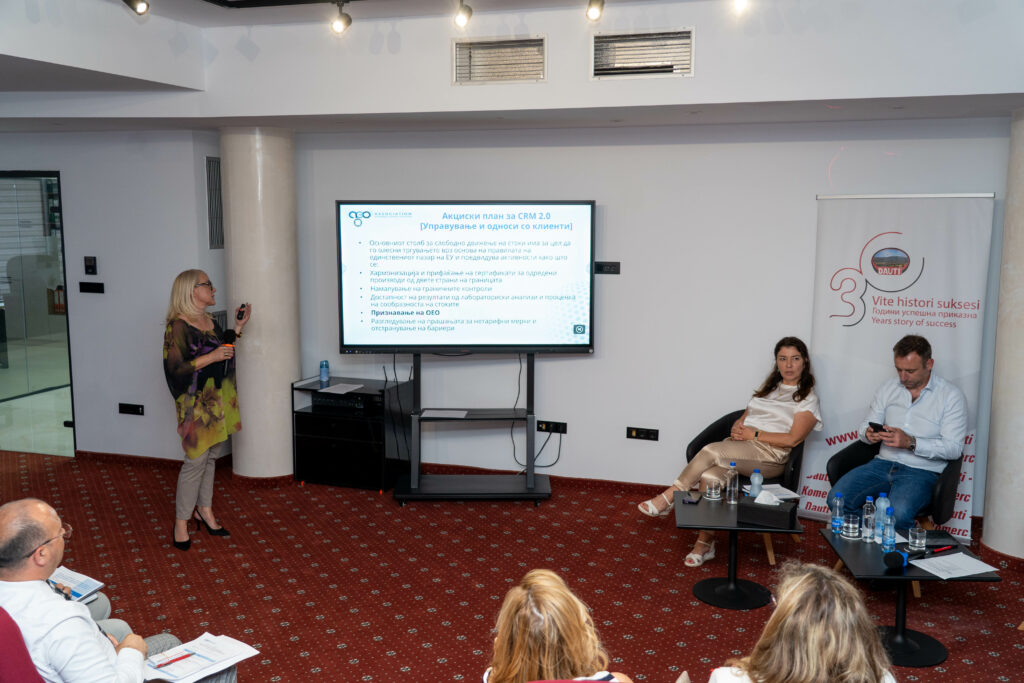
Focus on AVA Cooperation and Harmonization of Controls
A particularly critical point of discussion was the treatment of AEO-certified companies by the Food and Veterinary Agency (AVA). Despite their trusted operator status, these businesses continue to face redundant controls.
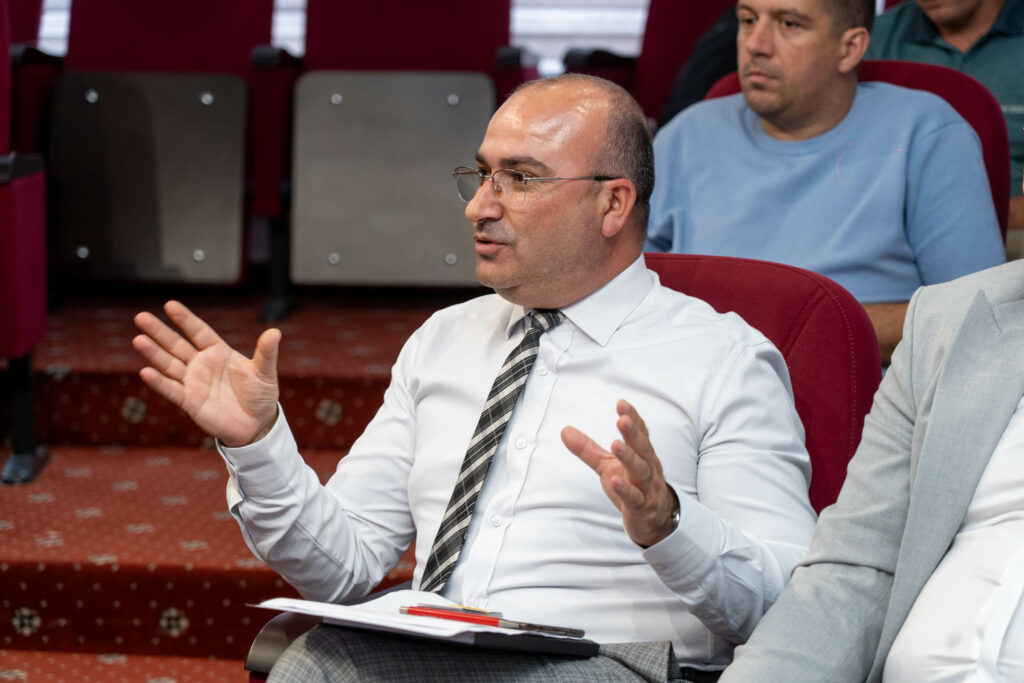
A key proposal from the meeting:
Allow local AVA inspectors, rather than central ones, to carry out controls on AEO shipments.
This would:
- Reduce administrative burdens and clearance delays,
- Improve institutional coordination and efficiency,
- Strengthening trust between the Government Agencies and private sectors.
This recommendation aligns with international trade facilitation standards and the principles of harmonizing official controls for trusted operators.
Call for Collaboration and Engagement

The round table concluded with agreement on several next steps:
- Circulate minutes of the meeting to all participants and relevant authorities.
- Develop a targeted action plan to address the issues raised.
- Enhance visibility and promotion of the AEO Association to raise institutional awareness.
- Strengthening AEO membership,
- Encouraging active participation in the Association, and
- Promoting a “unified voice” among AEO holders to enhance dialogue with relevant institutions.
Events such as this serve as vital platforms for aligning strategic priorities, identifying practical solutions, and reinforcing our collective commitment to improving customs procedures and strengthening supply chain security across the region.
The Association reaffirmed its commitment to act as a regional platform for strengthening the implementation of AEO benefits across the Western Balkans.
The Skopje round table was the second meeting of this type after the first meeting https://aeoassociation.com/round-table-with-albanian-companies-holding-aeo-status/ organized on 10th June 2025 in Tirana. Continued dialogue meetings organized by the AEO Association are aiming to promote the association and identify challenges among companies holding AEO status. In the forthcoming period AEO Association is planning to organize meetings of the same format in Belgrade, Sarajevo, Podgorica and Prishtina, in this way reinforcing the importance of consistent and recognized application of the AEO framework across all economies of the region. Stay tuned for more AEO news from the region.
Contact Information
AEO Association for the Western Balkans
📧 regional@aeoassociation.com
📧 connect@aeoassociation.com
